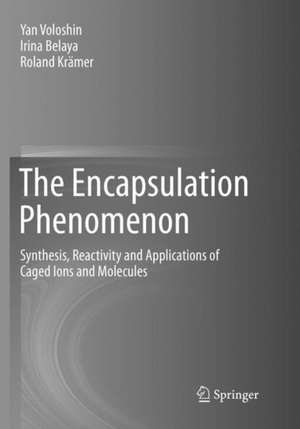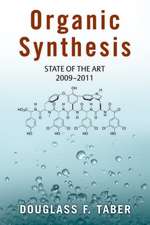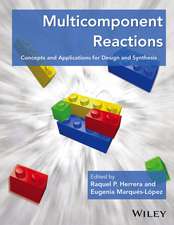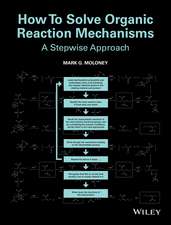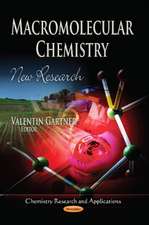The Encapsulation Phenomenon: Synthesis, Reactivity and Applications of Caged Ions and Molecules
Autor Yan Voloshin, Irina Belaya, Roland Krämeren Limba Engleză Paperback – 26 mai 2018
This fundamental book presents the most comprehensive summary of the current state of the art in the chemistry of cage compounds. It introduces different ways of how ions and molecules can be encapsulated by three-dimensional caging ligands to form molecular and polymeric species: covalent, supramolecular, and coordination capsules. The authors introduce their classification, reactivity, and selected practical applications. Because encapsulation can isolate caged ions and molecules from external factors, the encapsulated species can exhibit unique physical and chemical properties. The resulting specific reactivity and selectivity can open up a range of applications, including chemical separation, recognition, chiral separation, catalysis, applications as sensors or probes, as molecular or supramolecular devices, or molecular carriers (cargo).
A particularly strong emphasis in this book is on the summary and review of the synthesis of various types of cage compounds. Readers will find over 850 literature references summarized and clearly represented in over 600 schemes and illustrations. The book is structured by the types of caging ligands (covalent, supramolecular, or coordination capsules). The authors further arranged the chapters by ligand classes and types of encapsulated species (neutral molecules, anions, or cations). Readers will hence find an exhaustive reference resource and summary of the current state of research into encapsulated species, nowadays almost a separated realm of modern chemistry.
| Toate formatele și edițiile | Preț | Express |
|---|---|---|
| Paperback (1) | 1089.72 lei 38-44 zile | |
| Springer International Publishing – 26 mai 2018 | 1089.72 lei 38-44 zile | |
| Hardback (1) | 1113.53 lei 38-44 zile | |
| Springer International Publishing – 10 mai 2016 | 1113.53 lei 38-44 zile |
Preț: 1089.72 lei
Preț vechi: 1433.85 lei
-24% Nou
Puncte Express: 1635
Preț estimativ în valută:
208.57€ • 218.81$ • 173.02£
208.57€ • 218.81$ • 173.02£
Carte tipărită la comandă
Livrare economică 25-31 ianuarie 25
Preluare comenzi: 021 569.72.76
Specificații
ISBN-13: 9783319802046
ISBN-10: 3319802046
Pagini: 638
Ilustrații: XVI, 638 p. 1518 illus., 784 illus. in color.
Dimensiuni: 178 x 254 mm
Greutate: 1.32 kg
Ediția:Softcover reprint of the original 1st ed. 2016
Editura: Springer International Publishing
Colecția Springer
Locul publicării:Cham, Switzerland
ISBN-10: 3319802046
Pagini: 638
Ilustrații: XVI, 638 p. 1518 illus., 784 illus. in color.
Dimensiuni: 178 x 254 mm
Greutate: 1.32 kg
Ediția:Softcover reprint of the original 1st ed. 2016
Editura: Springer International Publishing
Colecția Springer
Locul publicării:Cham, Switzerland
Cuprins
Introduction, and the classification of caging ligands and cage complexes.- Encapsulation by covalent capsules.- Encapsulation by hydrogen-bonded and other supramolecular capsules.- Encapsulation by coordination capsules.- Reactivity of encapsulated species.- Practical applications of cage complexes.
Notă biografică
Prof. Dr. Yan Voloshin is Full Professor in Inorganic Chemistry at the Nesmeyanov Institute of Organoelement Compounds of the Russian Academy of Sciences, the Head of the laboratory of aliphatic organoboron compounds and Research Professor at the Gubkin Russian State University of Oil and Gas, Moscow, Russia. He obtained his M.Sc. in 1985 from the Kiev National Shevchenko University, Department of Chemistry, PhD from the Vernadskii Institute of General and Inorganic Chemistry, National Academy of Sciences of Ukraine in 1988, and his degree as Doctor of Sciences from the Institute of Solution Chemistry of the Russian Academy of Sciences in 1994. He was also the Head of the laboratory of metal complex catalysis at the Karpov Institute of Physical Chemistry in Moscow (1991-2010). His research interests focus on Coordination chemistry, Supramolecular chemistry, Bioinorganic Chemistry, Hydrogen Energetics and Production, Macrocyclic chemistry, Cage metal complexes, Clathrochelates, Nanochemistry, and Topological drugs.
Dr. Irina G. Belaya works as scientific researcher at the Nesmeyanov Institute of Organoelement Compounds of the Russian Academy of Sciences, Moscow, Russia. Her research interests center around Coordination chemistry, Macrocyclic compounds, and cage complexes. Dr. Belaya studied chemistry and obtained her M.S. at The Highest Chemical College of the Russian Academy of Sciences, Moscow, Russia. She received her PhD in 2013 from the Nesmeyanov Institute of Organoelement Compounds of the Russian Academy of Sciences.
Prof. Dr. Roland Krämer is Full Professor at the University of Heidelberg at the Faculty of Chemistry and Geosciences, Institute of Inorganic Chemistry. He studied chemistry at Technical University of Karlsruhe and University of München, where he also obtained his PhD degree for research on Organotransition metal complexes of amino acids, peptides and their derivatives in 1991. He then joined the group of J.-M. Lehn in Strasbourg for postdoctoral research, before starting his habilitation in Münster (1993-1997). Prof. Krämer worked as a guest scientist at the University of Vienna and took a sabbatical in the chemical industry (Henkel KgaA, Düsseldorf), working on bleaching catalysts for detergents. In 1998 he became Professor at the University of Münster, accepted (partially in parallel) a position as Assistant Professor at University of Mainz, and then moved to Heidelberg as Full Professor in 1999.
Caracteristici
An exhaustive summary of cage compounds and their chemistry, summarizing synthesis and introducing reactivity and applications Contains over 850 literature references, clearly represented in over 600 schemes and illustrations Clearly structured: separated chapters for each type of caging ligands (covalent, supramolecular, and coordination capsules), ordered by ligand classes and types of encapsulated species (cations, anions and neutral molecules)
